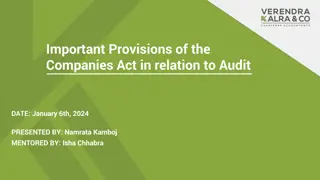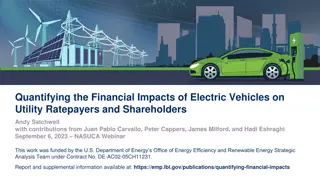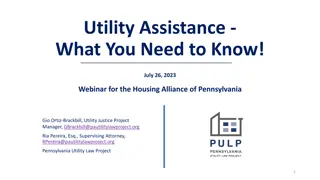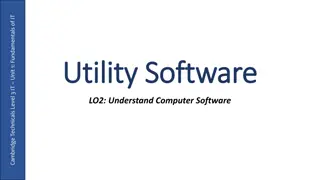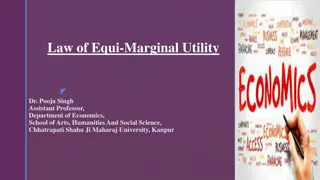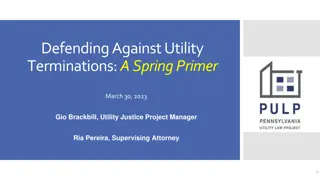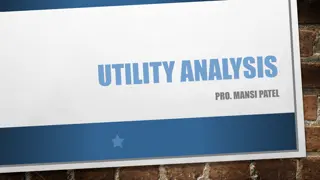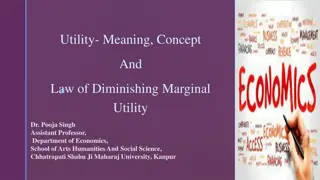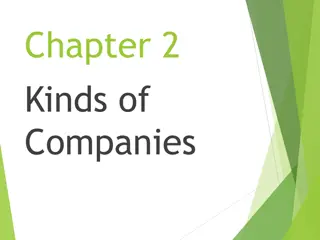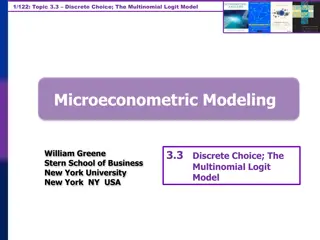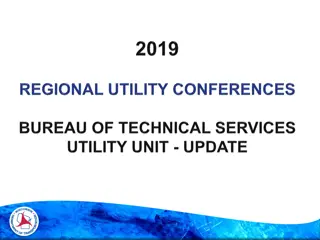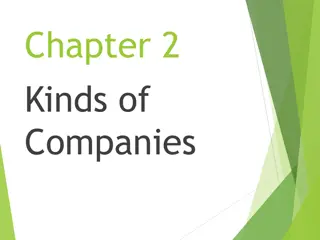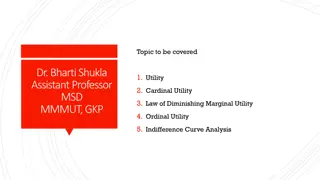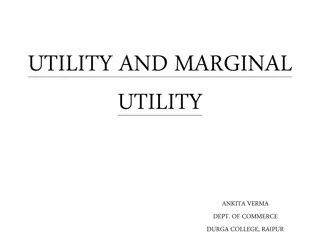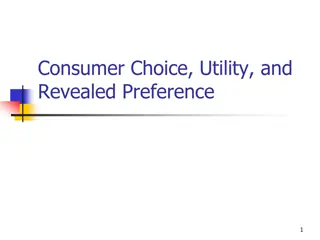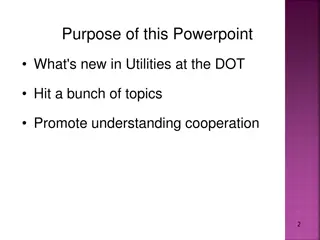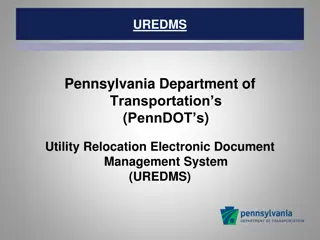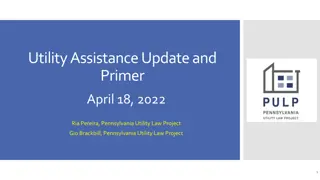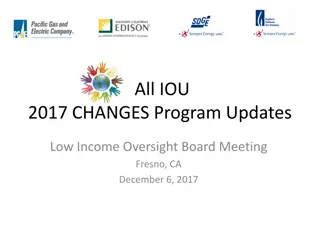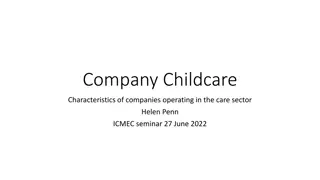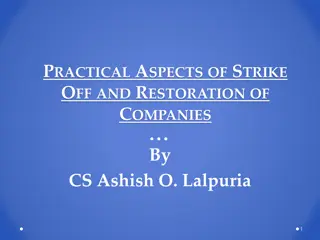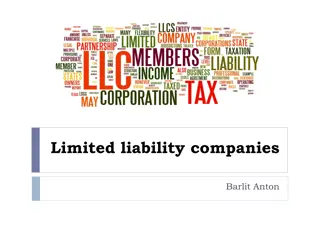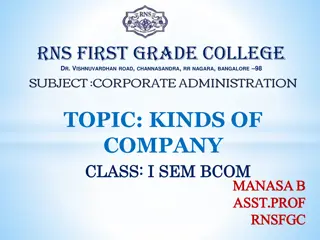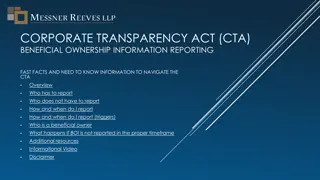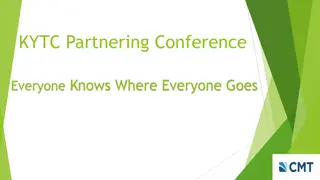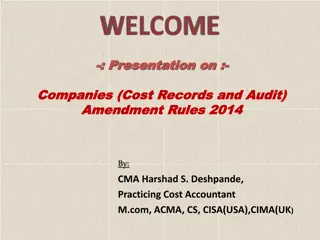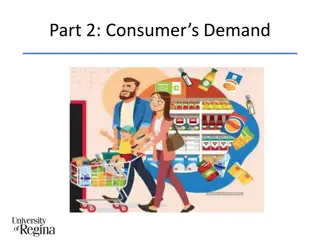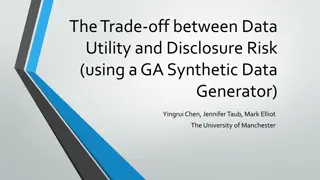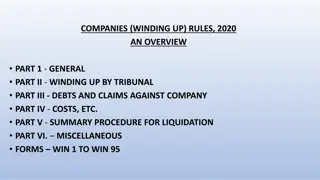Top Utilities Asset Management Solutions Companies
From rising customer expectations to rapidly changing regulatory norms, the utility industry is facing numerous challenges. To overcome these obstacles, utilities are now shifting their focus to digital transformation. Scaling to a digital utility concept requires a shift in the mindset and culture
1 views • 6 slides
Important Provisions of Companies Act Regarding Audit
The Companies Act mandates specific provisions related to audit, including the appointment of auditors, consent, certificates, and rotation requirements. Companies need to appoint auditors timely, obtain consent and eligibility certificates before appointment, and adhere to mandatory auditor rotatio
2 views • 22 slides
Blog 2- Unveiling the Top RPO Companies in the USA_ Elevate Your Recruitment Strategy
In the competitive landscape of talent acquisition, companies are increasingly turning to Recruitment Process Outsourcing (RPO) providers to streamline their hiring processes and gain access to top talent. With a myriad of RPO companies in the USA, it can be challenging to identify the best partners
6 views • 2 slides
Financial Impacts of Electric Vehicles on Utility Ratepayers and Shareholders
Analysis funded by the U.S. Department of Energy examines the effects of electric vehicle adoption on utility finances, including ratepayer and shareholder impacts. The study delves into customer EV adoption, utility revenue collection, and investment value. Various charging strategies and utility c
0 views • 21 slides
Understanding Utility Assistance and Support in Pennsylvania
Gain insights into utility assistance initiatives in Pennsylvania through the perspective of the Pennsylvania Utility Law Project. Topics covered include regulated vs. unregulated utilities, affordability issues, tenant protections, and the impact of utility insecurity on various aspects of life. Di
1 views • 32 slides
Understanding Utility Software in IT Systems
Utility software plays a crucial role in maintaining and configuring computer systems. This unit focuses on key utility software types like defragmentation, backups, compression, anti-virus, and encryption. Understanding the purpose, features, advantages, and disadvantages of utility software is ess
0 views • 9 slides
Understanding the Law of Equi-Marginal Utility in Economics
Law of Equi-Marginal Utility, propounded by Hermann Heinrich Gossen, explains how consumers distribute their income among different goods to maximize satisfaction. It involves equalizing the marginal utility per unit of money spent across various goods. The law is based on the assumptions of rationa
0 views • 8 slides
Defending Against Utility Terminations: A Spring Primer
The Pennsylvania Utility Law Project (PULP) provides assistance and advice on residential utility and energy matters for low-income consumers, aiming to ensure equitable access to affordable utility services. PULP offers direct representation, utility assistance program design, and technical assista
0 views • 47 slides
Understanding Utility: Marginal vs. Total Utility
Utility in economics is the satisfaction derived from consuming goods or services. Marginal utility measures the change in total utility as consumption increases, whereas total utility is the sum of satisfaction obtained from consuming different units of a commodity. Consumers aim to maximize total
2 views • 11 slides
Understanding Utility: Meaning, Concept, and Law of Diminishing Marginal Utility
Utility is the satisfaction or well-being a consumer derives from consuming goods or services. Total utility is the sum of satisfactions, while marginal utility is the additional satisfaction from one more unit consumed. Utility can be measured and ranked but not numerically. The Law of Diminishing
3 views • 9 slides
Understanding Different Types of Companies in Business
Explore the various kinds of companies in the business world, including statutory companies, registered companies, private companies, public companies, and more. Learn about the differences between private and public companies, statutory company examples like LIC and RBI, and the characteristics of
0 views • 25 slides
Microeconometric Modeling with Multinomial Logit Model
The topic discusses the Multinomial Logit Model in the context of discrete choice modeling, covering concepts, models, consumer preferences, utility maximization, and implications for discrete choice models. It explores how consumers maximize utility under budget constraints, the need for well-defin
1 views • 58 slides
WisDOT Utility Coordination Efforts for Statewide Projects
WisDOT is testing new processes using DocuSign for utility coordination in statewide projects, aiming to streamline procedures and reduce over-processing. Shane Smith and Dylan Gates are leading the testing phase with utility companies to gather feedback and improve the system. The team's goal is to
5 views • 20 slides
Insights into the Biotech Industry: Companies, Key Players, and Career Pathways
Keith Ho's career journey from a scientist to a digital health expert at Biogen is highlighted. The overview covers the definition of biotech, the concentration of biotech companies in the US, and the global distribution of such companies. Additionally, key insights into the top biopharma companies
0 views • 9 slides
An Overview of Different Types of Companies and Their Characteristics
Explore the various kinds of companies based on mode of incorporation, number of members, liability of members, and more. Learn about statutory companies, registered companies, private companies, and the distinctions between different types of companies in the business world.
0 views • 25 slides
Understanding Consumer Choices and Utility Maximization
Exploring how consumers make consumption decisions based on utility theory, marginal utility, and preferences. Analyzing Lisa's consumption possibilities, total utility, and marginal utility to illustrate economic concepts. Discussing the utility-maximizing rule for optimal decision-making in spendi
0 views • 22 slides
Understanding Utility Theory in Economics
Utility theory in economics explores the concept of utility, which refers to the satisfaction or want-satisfying capacity a commodity provides to consumers. It is subjective, relative, and can vary among individuals. Cardinal utility analysis quantifies utility in numbers, while total utility and ma
3 views • 13 slides
Understanding Utility and Marginal Utility in Economics
Utility refers to the satisfaction a consumer receives from consuming commodities. It is a subjective concept that can be measured through cardinal or ordinal approaches. Cardinal approach involves measuring utility numerically, while ordinal approach orders levels of satisfaction based on utility.
0 views • 16 slides
Understanding Consumer Choice and Utility Theory
Explore the concepts of consumer choice, utility, and revealed preference in economics. Learn how utility functions help us rank the desirability of consuming different bundles of goods. Discover the mathematical representation of utility and see examples of representing utility in terms of goods co
0 views • 69 slides
Enhancing Utility Coordination for DOT Projects in Iowa
This PowerPoint presentation delves into the key aspects of utility coordination for Department of Transportation (DOT) projects in Iowa. Covering topics such as Buy America regulations, lane restriction notifications, utility accommodation policies, and coordination methods, the presentation aims t
0 views • 17 slides
FHWA Utility Relocation and Accommodation Guidelines Summary
This document provides detailed information on the FHWA Utility Relocation and Accommodation Guidelines, including relevant Kentucky Revised Statutes (KRS) such as KRS 416.360 and federal regulations like 23 CFR 645.107 and 23 CFR 645.111. It discusses the acquisition of real property for public uti
0 views • 11 slides
PennDOT UREDMS - Utility Relocation Electronic Document Management System
PennDOT's UREDMS (Utility Relocation Electronic Document Management System) is an electronic document management system used for utility relocations. It functions as a virtual filing cabinet, allowing for easier search, faster retrieval, and better revision control of important documents. The system
1 views • 15 slides
Utility Assistance Update and Primer - PULP Focus on Low-Income Residential Utility in Pennsylvania
Today's webinar presented by Pennsylvania Utility Law Project (PULP) focused on LIHEAP programs, tools for preventing termination, and special protections for utility customers. It covered the Winter Moratorium ending, LIHEAP basics, eligibility criteria for cash grants, and more to assist low-incom
0 views • 50 slides
Changes Programs and Trends in Utility Companies - December Updates
Updates and activities in programs offered by utility companies including IOU, PG&E, and SDG&E focusing on consumer education, assistance programs, energy efficiency, and customer service enhancements. Reports include changes made to payment plans, application assistance, safety tips, and community
0 views • 7 slides
Characteristics of Companies in the Care Sector
Companies operating in the care sector exhibit distinct characteristics, such as financial prioritization, control by financial experts, and reliance on technology. Large care chains engage in takeovers and have offshore accounts, while smaller companies face asset stripping and profit maximization
0 views • 5 slides
Efficient Top-k Query Processing Using Probabilistic Utility Functions
This paper presents a method for determining which cars to display on an online car selling service based on users' utility functions. It explores the use of probabilistic utility functions to identify cars that users would be interested in, addressing limitations of traditional top-k and skyline qu
0 views • 28 slides
Practical Aspects of Strike Off and Restoration of Companies by CS Ashish O. Lalpuria
This presentation discusses the practical aspects of striking off and restoring companies based on analysis of case laws from NCLT and NCLAT. It covers types of strike off, companies that cannot be struck off by ROC, and the process of strike off by the Registrar of Companies. Various scenarios and
0 views • 44 slides
Overview of Limited Liability Companies under Polish Company Law
Explore the legal aspects of limited liability companies under the Polish Commercial Companies Code, detailing formation, share capital requirements, shareholder liabilities, and powers granted to these entities. Learn about the two main types of companies in Polish law, their characteristics, and k
0 views • 13 slides
The Foundations of the Separation of Powers in Companies
The separation of powers in companies is based on the dualism of organs: the Board and General Meeting. The actual situation in companies diverges between large public companies with autonomous management and smaller private companies with owner-operators. The search for the foundations of the separ
0 views • 15 slides
Types of Companies in Corporate Administration
This article discusses the various kinds of companies in corporate administration, including incorporated, chartered, statutory, and registered companies. It covers the definition of a company, different types of legal entities, and examples of each type. The classification of companies based on inc
0 views • 17 slides
Efic: Specialist Financing Solutions for Australian Companies
Efic is a specialist financier owned by the Australian Government, providing creative financing solutions to help Australian companies succeed globally. They offer various financial instruments like bonds, guarantees, and loans to assist companies in winning contracts and expanding internationally.
0 views • 11 slides
Corporate Transparency Act (CTA) Beneficial Ownership Reporting Requirements
The Corporate Transparency Act (CTA) mandates companies to report information about their beneficial owners to FinCEN starting January 1, 2024, to combat illicit activities. Reporting companies include U.S.-based corporations, LLCs, and foreign companies registered to do business in the U.S. Exempt
0 views • 10 slides
Understanding Borrowing Powers of Companies under Companies Act, 2013
The term "Borrowing" in the Companies Act, 2013, pertains to the power granted in Section 180(1)(c) for companies to borrow money with the consent of the company by a special resolution. This includes provisions on limits, definitions of temporary loans, necessary board resolutions, and validity of
1 views • 8 slides
Transforming Utility Coordination for Effective Project Delivery
Embracing a new paradigm in utility coordination by treating utility companies as business partners can streamline project development, enhance cost-effectiveness, and benefit public interest. Early coordination, practical design alternatives, and proactive engagement with utilities are vital in pro
0 views • 19 slides
Companies (Cost Records and Audit) Amendment Rules 2014 Overview
The Companies (Cost Records and Audit) Amendment Rules 2014, presented by CMA Harshad S. Deshpande, cover the applicability of cost records and cost audit for companies in regulated and non-regulated sectors. The rules specify the class of companies engaged in production or services that must mainta
1 views • 41 slides
Understanding Consumer Demand: From Utility Theory to Behavior in the Marketplace
We delve into the relationship between utility theory and consumer demand, exploring how individuals' tastes, preferences, and budget constraints influence their choices. Through examples like Neal's decision between snowboarding and jazz, we see how utility translates into demand curves, guiding co
0 views • 17 slides
Understanding the Trade-off between Data Utility and Disclosure Risk
This study explores the balance between data utility and disclosure risk using a GA synthetic data generator. The authors delve into measuring utility and risk, emphasizing structured categorical data. They define synthetic data, discuss utility assessment methods, and outline how to measure data ut
0 views • 30 slides
Understanding Growth Companies and Growth Stocks
Differentiating between good companies and good investments, this content delves into the intrinsic value versus market value of stocks, the characteristics of growth companies and growth stocks, and how stock prices can be undervalued or overvalued in the market due to incomplete information. It em
0 views • 38 slides
Utilities United Against Scams & Consumer's Guide to Impostor Utility Scams
Over 100 gas, electric, and water companies in the U.S. and Canada are collaborating through Utilities United Against Scams (UUAS) to combat utility scams. The UUAS charter, adopted in July 2017, lists executive committee members and organizations engaged with UUAS. 76 organizations have adopted the
0 views • 18 slides
Companies (Winding Up) Rules, 2020: An Overview
The Companies (Winding Up) Rules, 2020 provide guidelines for winding up a company by the Tribunal under the Companies Act, 2013. The rules cover various aspects such as modes of winding up, circumstances under which a company may be wound up by the Tribunal, definitions, forms, and more. It specifi
1 views • 110 slides

